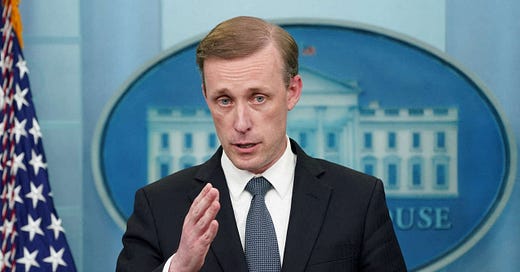In the Face of Putin’s Nuclear Threat, the United States Refuses to Escalate.
Washington warns of the catastrophic consequences of such an act on the part of Russia but remains vague about its potential response.
Cultivating both clarity and ambiguity requires rhetorical flexibility. This is the exercise that the Biden administration is undertaking in the face of the Russian nuclear threat. With the approach of a probable announcement of annexation by Moscow of Ukrainian territories in the east of the country, even as fighting continues, American officials are p…
Keep reading with a 7-day free trial
Subscribe to Sylvain Saurel’s Newsletter to keep reading this post and get 7 days of free access to the full post archives.




